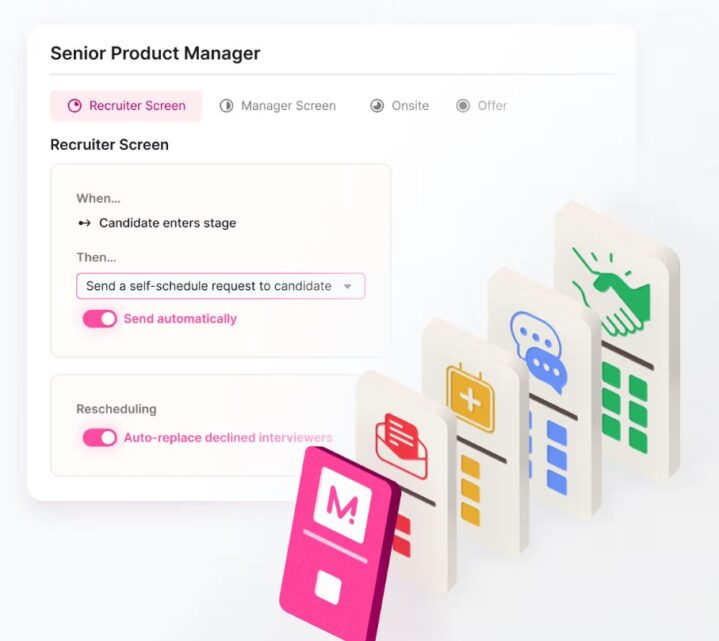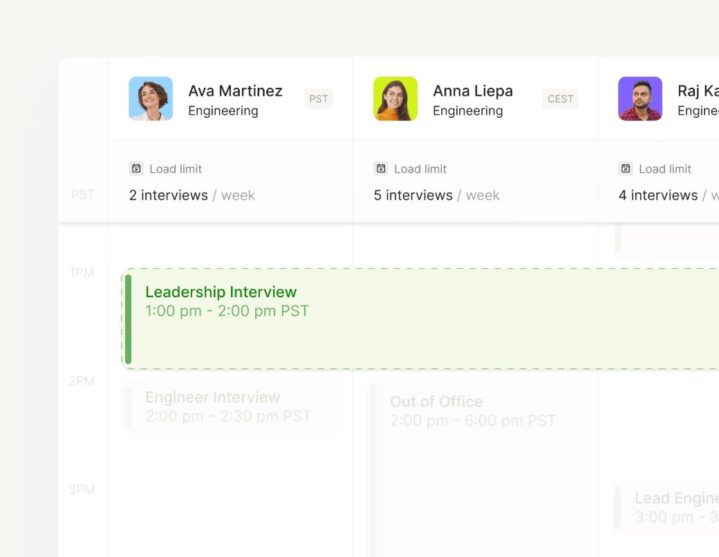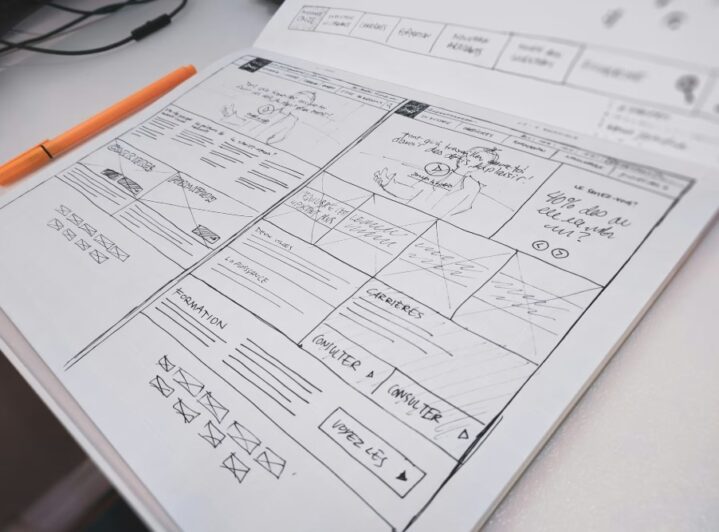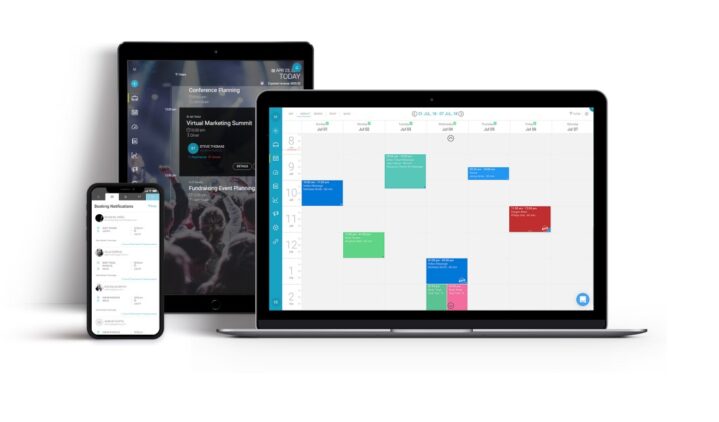Recruitment is one of the most critical functions for any organization, and streamlining the process is essential for attracting top talent efficiently. One of the biggest challenges faced by HR teams is managing the scheduling process. Coordinating multiple schedules, time zones, and rounds can quickly turn into a logistical nightmare. This complexity often leads to delays, confusion, and, in some cases, lost opportunities to hire the best candidates.
Fortunately, enterprise scheduling software has revolutionized the way organizations handle this task. By automating the scheduling process, these tools not only reduce administrative burdens but also enhance the candidate experience, streamline communication, and improve overall recruitment efficiency.
In this article, we’ll explore the benefits of using enterprise scheduling software and how it can optimize your hiring process, making recruitment easier and more effective.
Why Scheduling Matters
Scheduling may seem like a minor part of the recruitment process, but in reality, it’s often one of the most time-consuming and error-prone tasks. When handled manually, HR teams spend hours coordinating availability, sending emails, and confirming times, which can lead to miscommunications, double-bookings, or missed appointments.
These inefficiencies can create a poor experience for both candidates and interviewers and ultimately affect the quality of hires.
A smooth and seamless scheduling process, however, can lead to faster hiring decisions, a better candidate experience, and more successful outcomes. In today’s competitive job market, where top candidates can be lost to competitors if not hired quickly, streamlining the process is crucial for any business.
How Enterprise Scheduling Software Can Help

Enterprise scheduling software is designed to automate and optimize this process, offering a range of features that help HR teams manage candidates and interviewers efficiently. Here’s how this software can enhance your recruitment efforts:
1. Seamless Integration with Calendars
One of the primary benefits of enterprise interview scheduling software is its ability to integrate with existing calendar platforms such as Google Calendar, Microsoft Outlook, and others. This integration eliminates the need for manual entry of times and ensures that interviewers’ availability is automatically updated in real-time. With the software, you can sync schedules across multiple teams and departments, reducing conflicts and preventing double-bookings.
2. Automated Scheduling
Instead of manually coordinating times through email or phone calls, enterprise scheduling software allows candidates to select from available slots directly. This reduces the back-and-forth communication and empowers candidates to choose the time that works best for them. The software then automatically schedules, sends confirmations, and ensures all parties involved are updated in real-time.
3. Time Zone Management
For companies that operate globally or have remote teams, managing across different time zones can be a headache. Enterprise scheduling software helps by automatically adjusting the time zone settings for interviewers and candidates, ensuring that everyone is on the same page. This eliminates confusion and prevents costly mistakes due to miscalculated time differences.
4. Automated Reminders and Notifications
To prevent no-shows and last-minute cancellations, enterprise scheduling software sends automated reminders and notifications to both candidates and interviewers. These reminders help ensure that all parties are prepared, reducing the chances of missed appointments and improving the overall efficiency of the recruitment process.

5. Customizable Scheduling Features
Every role and every hiring process is different, and enterprise scheduling software offers customizable features that cater to the specific needs of each job opening. Whether it’s scheduling panel discussions, coordinating multiple rounds, or adding specific instructions for candidates, the software can be tailored to meet the unique requirements of each hiring process.
6. Streamlined Collaboration Between Teams
In large organizations, processes often involve multiple stakeholders—hiring managers, department heads, and sometimes even senior executives. Enterprise scheduling software allows teams to collaborate effortlessly by providing a centralized platform for scheduling, feedback, and communication.
Interviewers can leave notes and track candidates’ progress, ensuring better collaboration and faster decision-making.
7. Enhanced Candidate Experience
Candidates who are required to schedule manually often find the process frustrating. By using enterprise scheduling software, you’re offering candidates a smoother, more professional experience.
They can easily select times that work for them, receive automated reminders, and know that the company is organized and respects their time. A positive experience during this stage can leave candidates with a favorable impression of your organization, even if they aren’t hired.
8. Data-Driven Insights
Enterprise scheduling software often includes reporting and analytics features that allow HR teams to track various metrics related to the hiring process. You can track the time-to-hire, the efficiency of your process, the number of reschedules, and even feedback from interviewers.
These insights can help you refine your recruitment strategy, identify bottlenecks, and make data-driven decisions to improve future hiring efforts.

The Challenges of Manual Scheduling
Before the advent of enterprise scheduling software, many companies relied on manual methods for this task, which often involved multiple rounds of communication and plenty of administrative work. Some of the challenges faced with manual scheduling include:
- Time-consuming coordination ─ Coordinating schedules manually requires HR teams to spend hours emailing back and forth with candidates and interviewers to find mutually available time slots. This back-and-forth can be tedious, slow, and prone to errors.
- Increased risk of conflicts ─ When schedules are managed manually, there’s a higher chance of double-booking slots, which can result in wasted time for interviewers and frustration for candidates. This can lead to delays and missed opportunities to hire top talent.
- Poor candidate experience─ If candidates experience delays or confusion during the scheduling process, it reflects poorly on your company. Candidates may feel that the company is disorganized or not respectful of their time. A poor experience at this stage could cause top candidates to withdraw from the process.
- Limited visibility and collaboration ─ Without the right tools in place, HR teams may struggle to collaborate effectively when it comes to scheduling. They may lack visibility into who has scheduled, who needs to be involved, and where candidates are in the recruitment pipeline.

Conclusion
Optimizing scheduling is essential for improving the efficiency and effectiveness of your recruitment process. Enterprise scheduling software helps organizations automate and streamline this task, making it easier to coordinate, manage communications, and ensure that your recruitment team stays organized and efficient. By implementing such software, you can improve the candidate experience, reduce the time-to-hire, and ultimately make better hiring decisions.
While efficient scheduling accelerates hiring, aligning new hires with a structured annual compensation planning strategy ensures organizations remain competitive, equitable, and well-prepared to retain top talent once candidates are onboarded.
In today’s competitive job market, where time is of the essence and candidates are in high demand, optimizing your scheduling process can be the key to securing top talent faster. Investing in the right tools, such as enterprise scheduling software, is a smart move for any organization looking to stay ahead in the recruitment game.
